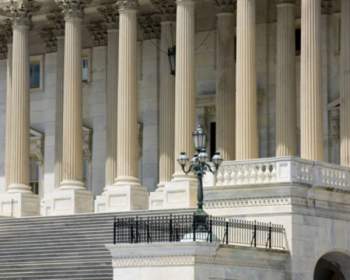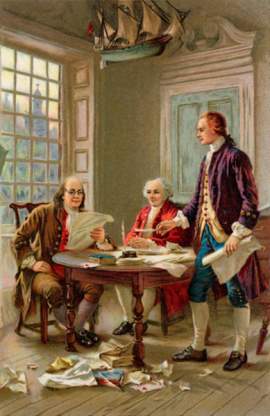
Executive Powers and Vesting Clause Explained

Popular In Constitution
Purpose Of Lifetime Appointment And Pros And Cons Enumerated Powers Bicameral Legislature Background Article 3 Of The Constitution We The People 1st Amendment Who Wrote The Constitution Judicial Review Equal Protection Clause 5th Amendment 10th Amendment Three Fifths Compromise
The vesting clause of any Article of the Constitution is the clause under which executive power is vested into a specific body or group. The First Article of the Constitution has a vesting clause giving power to Congress, in the form of the Senate and the House of Representatives. The Third Article of the Constitution has a vesting clause giving power to a single Supreme Court. In the Second Article of the Constitution, the body vested with power is the President of the United States of America. The President, unlike either of the other two bodies designated as recipients of vesting clauses in other Articles of the Constitution, is a single individual given full executive powers.
The executive powers given to the President in the vesting clause include a number of different elements, most of which are described in Section 2 of the Second Article. The first of the executivae powers described is command of the military. The President is given power by the Constitution as the Commander in Chief of the Army and the Navy of the United States of America. Though this is less significant now, he is also given power as the commander of the militia of the states when the militia is actually rounded up. Though the President does have executive powers as Commander in Chief, however, he does not have the power to declare war.
Another of the executive powers granted to the President is the ability to have any leading officer of any executive department submit a report to the President in writing, thereby giving the President power to command these officers to advise him. This is the executive power that creates the Cabinet, effectively.
The President is given the executive power to grant pardons or reprieves, with the exception that this executive power does not extend over situations of impeachment. A President does not have executive powers to pardon himself.
Yet another one of the executive powers given to the President is that he can ratify treaties, though this power is restricted, as it requires the President to obtain approval from the Senate. Treaties, in this sense, refer to international agreements, though treaties are only one type of international agreement possible. There are some types of international agreement, known as sole-executive agreements, which require only the approval of the President. But executive powers concerning treaties specifically do require the President to obtain a two-thirds approval from the Senate before ratifying the treaty in question.
The President is given executive powers concerning the appointment of a large number of public officials, including judges and ambassadors. These approvals do require the approval of the Senate as well, but the President is thus given executive powers to appoint any officers whose appointment is not specifically defined elsewhere in the Constitution. The President is also given executive powers to appoint public officials of a lower level without needing to obtain the approval of the Senate.
Finally, the President is given executive powers to make recess appointments. A recess appointment is an appointment to a senior Federal position without the approval of the Senate because the Senate is in recess at the time that the appointment is made. All recess appointments still have to be approved by the Senate by the end of the next session of Congress, and as such, the Senate can undue the President's recess appointments.
NEXT: Knowing The Debates over Systematic Reform




















